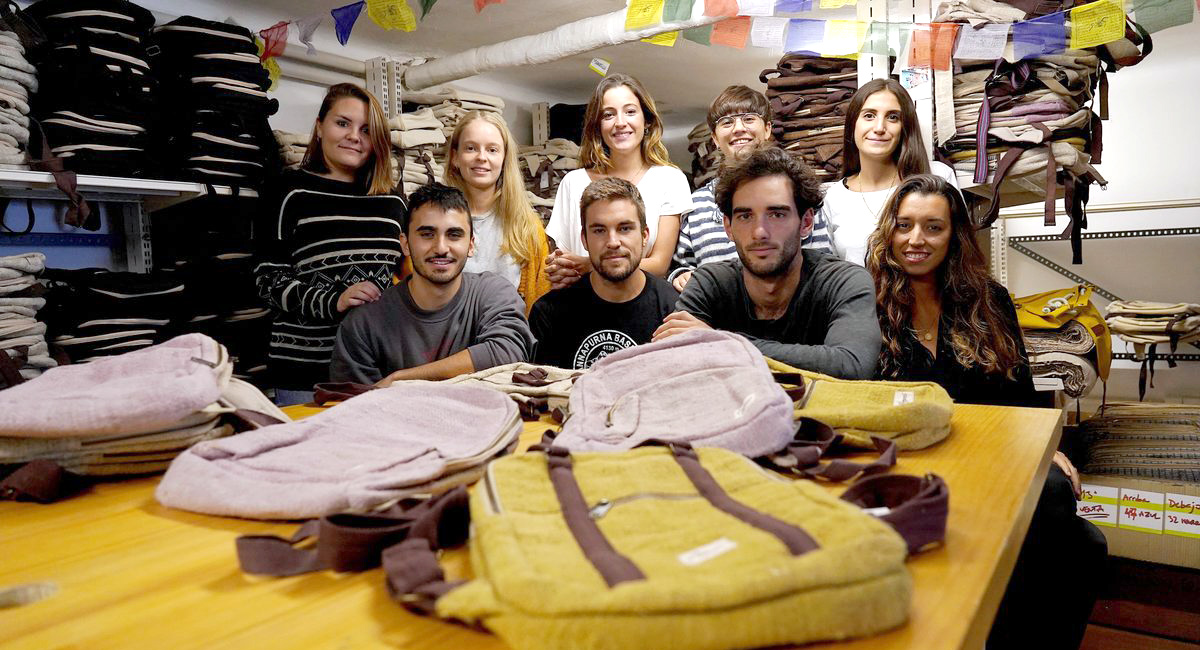
THE PROBLEM

The textile industry is the second most polluting in the world, after the oil industry. This is due, in part, to the growth of the fast-fashion model, which is based on low-cost manufacturing and rapid consumption of garments with a short life cycle. This poses environmental, health and social problems in the countries where it is manufactured.
If we look at Nepal, the country is among the 5 poorest in Asia, with ¼ of the population below the poverty line and a GDP of 2.5 dollars per capita.
THE SOLUTION
Hemper is a sustainable fashion brand born with the aim of promoting the economic development of Nepal. The entire production chain is developed in Nepal by people from vulnerable groups, to whom they offer decent contracts and tutoring classes for their children. In addition, its products are based on the use of hemp, a material that represents an enormous saving in water compared to what it would cost to manufacture a traditional cotton garment.
Until now, Hemper has focused on offering “Things to carry things”, such as backpacks, computer cases, fanny packs, or bags. However, now the company based in Madrid wants to expand into other sectors, such as home care (household products), where Nepal also has a lot to offer.





SOCIAL AND ENVIRONMENTAL IMPACT
104
NEPALIAN WORKERS REMOVED FROM THE STATE OF VULNERABILITY
84
CHILDREN WHO HAVE BEEN GIVEN SCHOOL SUPPORT
96.000.000
LITERS OF WATER
SAVED
THE TEAM
Hemper was born, like many other great ideas, out of a trip. In 2015, after the earthquake that struck Nepal, several friends from Madrid got together and decided to volunteer. What they saw marked them in such a way that as soon as they returned to Spain they decided to continue generating an impact in the country. Thus was born the Hemper project.
Currently, the project leaders are Gloria Gubianas and Alex Pastrana, two young social entrepreneurs with very clear ideas: they want Hemper to go beyond fashion, generating a true positive impact throughout its value chain, and helping to develop the economy of Nepal.
“
«Hemper is not just a brand, it is a story, a concept associated with sustainability values. We use the company as a tool for social transformation. »
GLORIA GUBIANAS
